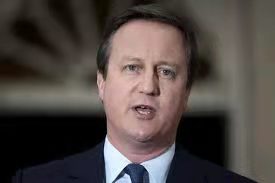



第7节
And that will make our countries weaker not stronger.
That is why we need fundamental, far-reaching change.
So let me set out my vision for a new European Union, fit for the 21st century.
It is built on five principles.
The first: competitiveness. At the core of the European Union must be, as it is now, the single market. Britain is at the heart of that single market, and must remain so.
But when the single market remains incomplete in services, energy and digital – the very sectors that are the engines of a modern economy – it is only half the success it could be.
It is nonsense that people shopping online in some parts of Europe are unable to access the best deals because of where they live. I want completing the single market to be our driving mission.
I want us to be at the forefront of transformative trade deals with the US, Japan and India as part of the drive towards global free trade. And I want us to be pushing to exempt Europe's smallest entrepreneurial companies from more EU directives.
These should be the tasks that get European officials up in the morning – and keep them working late into the night. And so we urgently need to address the sclerotic, ineffective decision-making that is holding us back.
That means creating a leaner, less bureaucratic union, relentlessly focused on helping its member countries to compete.
In a global race, can we really justify the huge number of expensive peripheral European institutions?
Can we justify a commission that gets ever larger?
Can we carry on with an organization that has a multibillion pound budget but not enough focus on controlling spending and shutting down programs that haven't worked?
第8节
And I would ask: when the competitiveness of the single market is so important, why is there an environment council, a transport council, an education council but not a single market council?
The second principle should be flexibility.
We need a structure that can accommodate the diversity of its members – north, south, east, west, large, small, old and new. Some of whom are contemplating much closer economic and political integration. And many others, including Britain, who would never embrace that goal.
I accept, of course, that for the single market to function we need a common set of rules and a way of enforcing them. But we also need to be able to respond quickly to the latest developments and trends.
Competitiveness demands flexibility, choice and openness – or Europe will fetch up in a no-man's land between the rising economies of Asia and market-driven North America.
The EU must be able to act with the speed and flexibility of a network, not the cumbersome rigidity of a bloc.
We must not be weighed down by an insistence on a one size fits all approach which implies that all countries want the same level of integration. The fact is that they don't and we shouldn't assert that they do.
Some will claim that this offends a central tenet of the EU's founding philosophy. I say it merely reflects the reality of the European Union today. 17 members are part of the eurozone. 10 are not.
26 European countries are members of Schengen – including four outside the European Union – Switzerland, Norway, Liechtenstein and Iceland. Two EU countries – Britain and Ireland – have retained their border controls.
第9节
Some members, like Britain and France, are ready, willing and able to take action in Libya or Mali. Others are uncomfortable with the use of military force.
Let's welcome that diversity, instead of trying to snuff it out.
Let's stop all this talk of two-speed Europe, of fast lanes and slow lanes, of countries missing trains and buses, and consign the whole weary caravan of metaphors to a permanent siding.
Instead, let's start from this proposition: we are a family of democratic nations, all members of one European Union, whose essential foundation is the single market rather than the single currency. Those of us outside the euro recognize that those in it are likely to need to make some big institutional changes.
By the same token, the members of the eurozone should accept that we, and indeed all member states, will have changes that we need to safeguard our interests and strengthen democratic legitimacy. And we should be able to make these changes too.
Some say this will unravel the principle of the EU – and that you can't pick and choose on the basis of what your nation needs.
But far from unravelling the EU, this will in fact bind its members more closely because such flexible, willing co-operation is a much stronger glue than compulsion from the centre.
Let me make a further heretical proposition.
The European treaty commits the member states to "lay the foundations of an ever closer union among the peoples of Europe".
【关联阅读】
温馨提示:横线象征链接。点击横线,直通链接。
 |
 |
|
学 习 辅 导 |
咨 询 热 线 |